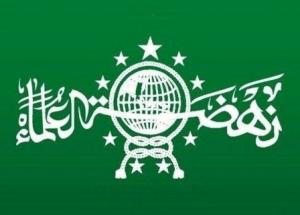NU appreciates govt for hosting UN-led Israeli-Palestinian discussions
NU Online · Ahad, 13 Desember 2015 | 12:17 WIB
Lamongan, NU Online
Deputy chairman of the Regional Board of Nahdatul Ulama Lamongan East Java greatly appreciated the government of Indonesia for continuing its support for an independent Palestine by hosting a series of discussions in Jakarta in the near future.
<>
"I do appreciate the important roles played by the Jokowi's administration for initiating meetings to address the need of Palestine to be recognized as an independent and sovereign state," KH Ahmad Suyuthi told NU Online here on Monday.
He said that Israel and a number of other countries ddid not recognize Palestine, taking the position that the establishment of this state can only be determined through direct negotiations between Israel and the PNA.
"The main issues currently obstructing an agreement are borders, security, water rights, the status of Jerusalem and freedom of access to religious sites, ongoing Israeli settlement expansion, and legalities concerning Palestinian refugees including their right of return," he said.
Meanwhile, Foreign Affairs Ministry’s director general for multilateral relations Hasan Kleib said that the discussions, which will be conducted by the United Nations, “will focus on discussing five core topics: border issues, the return of refugees to Palestine, the status of Israel’s illegal settlements and Palestinian internal security.”
Hasan said that the international conference would be conducted by the UN Committee on the Exercise of the Inalienable Rights of the Palestinian People (CEIRPP) in cooperation with the Organization of Islamic Cooperation (OIC) on Dec. 14 to 15, and would be followed by a UN Civil Society Forum on Dec. 16. These discussions would aim to compile a series of recommendations to be submitted to the UN, he added.
Under the theme “Addressing the Present and Shaping the Future of Jerusalem”, the events will involve international experts, including participants from Palestine and Israel, as well as representatives of the diplomatic community.
“The best solution for the Israeli-Palestinian conflict is de-occupation. The issue of the conflict is rooted in the illegal occupation [of Palestine by] Israel,” Hasan said during a press conference.
However, he continued, getting there is where the complication lies.
According to Hasan, Israel’s resolution of declaring Jerusalem as its eternal capital city further risked changing the demographics of the area, which drove Israel to obtain more land and reduce the Palestinian population in their occupied territories.
In support of the Palestinian people, Hasan said that the Indonesian government this year had already trained more than 1,000 Palestinians as part of capacity building schemes.
Palestinian Ambassador to Indonesia Fariz N. Mehdawi said the historic raising of the Palestinian flag at the UN Headquarters in September was a statement from the world organization that it was serious about a peaceful solution.
“It’s as if the United Nations is making it clear for everybody. It is not just a symbolic issue; rather it’s a political one, and a show of commitment for a two-state solution,” Fariz said.
These discussions come at an important time, he added, especially with the rising peace and safety issues on the Israel-Palestine border as seen in the recent Al-Aqsa mosque tensions in Jerusalem.
“For a soldier in uniform to come into a Muslim mosque means that somebody would like to impose their sovereignty, which is an act that is not acceptable in the international community and is also offensive to the religious community. This is a deliberate act, we think, by the Israeli government to assert their power,” said Fariz.
Around half a million Palestinians suffered from discrimination by the Israeli government, and still had limited access to development such as education and job opportunities, despite paying taxes imposed by Israel, added Farzi.
This had caused the growing resistance, especially from young Palestinians, he continued.
Farzi explained that the although the mode of resistance so far was disorganized, individual reactions that were therefore not political, it was still reacted to forcefully by the Israeli forces.
“We want to come to a conclusion that is inclusive and peaceful,” said Farzi. (masdar)
Terpopuler
1
Khutbah Jumat: Ramadhan, Melatih Sabar, Memperkuat Syukur
2
Gerhana Bulan Total Bakal Terlihat di Seluruh Indonesia pada Selasa 3 Maret 2026, Dianjurkan Shalat Khusuf
3
Khutbah Jumat: Tiga Kebahagiaan Orang Puasa
4
Gus Yahya Sebut Kepergian Ketum Fatayat Margaret adalah Kehilangan Besar bagi Keluarga NU
5
Ali Khamenei Wafat dalam Serangan Israel-Amerika
6
Khutbah Jumat: 4 Cara Menghidupkan Malam Ramadhan dengan Ibadah
Terkini
Lihat Semua
















